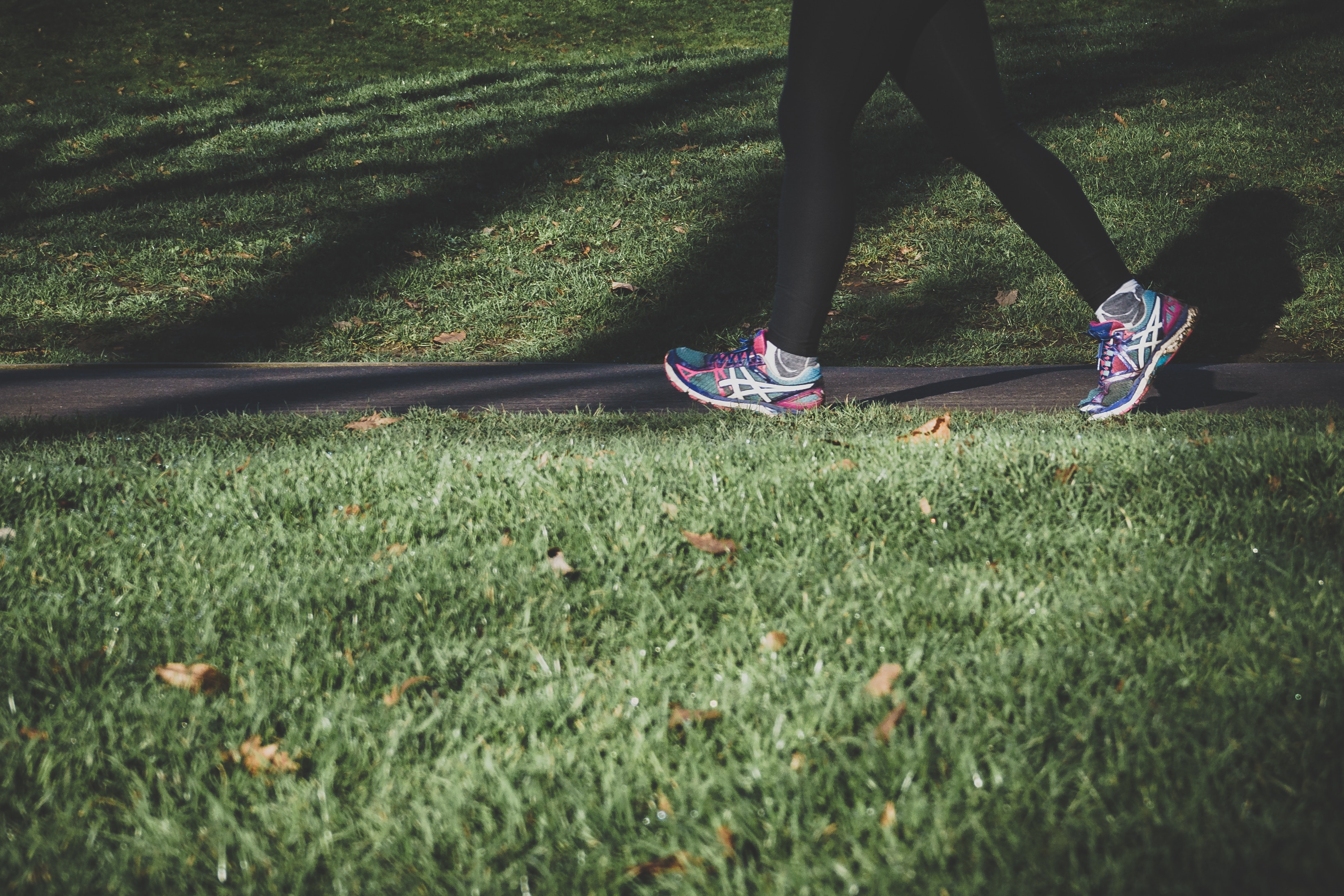By Sara Cohen
For as long as I can remember, I’ve struggled with my relationship with my body. For the past 23 years, I’ve been actively recovering from an eating disorder. In the past 5 years, I’ve finally felt like I was in a place where recovery wasn’t an active struggle. It isn’t that time finally caught up and I stopped caring about food or my body, or that the eating disorder magically disappeared. What happened is that I started running.
 Running is something I once used to fuel the destructive nature of my eating disorder, something I once did for the calorie burning affects, something I once hated. Five years ago, I really “found” running again, but this time as a source of mental release. Over time, I found that aside from the mental benefits, I learned to appreciate the strength and endurance of my body. I set distance and speed goals for myself and found that attaining those goals was as much mental as it was physical. With that, I found the power of linking my emotions directly to my physical body, something I completely avoided during my recovery. Running now propelled me to a place where I sought to pay attention to my body, nourish it well, and take pride in everything my body could do. Food was no longer about calories and fat content but about being fuel for my body. I was in a great place, and appreciated how normal I felt after spending so many years quieting the part of me that disapproved of everything about my body.
Running is something I once used to fuel the destructive nature of my eating disorder, something I once did for the calorie burning affects, something I once hated. Five years ago, I really “found” running again, but this time as a source of mental release. Over time, I found that aside from the mental benefits, I learned to appreciate the strength and endurance of my body. I set distance and speed goals for myself and found that attaining those goals was as much mental as it was physical. With that, I found the power of linking my emotions directly to my physical body, something I completely avoided during my recovery. Running now propelled me to a place where I sought to pay attention to my body, nourish it well, and take pride in everything my body could do. Food was no longer about calories and fat content but about being fuel for my body. I was in a great place, and appreciated how normal I felt after spending so many years quieting the part of me that disapproved of everything about my body.
I wondered at times, “what will I do if I can’t run anymore?”
Last summer, I was diagnosed with a knee condition that slapped me in the face with that very question. The reality was that I needed extensive preservative work done on my knee, due to damage from past surgeries on the same knee. The preservative work would be a temporary fix until I am more age appropriate for a knee replacement. When I asked about running, the doctor left it for me to decide, but made it abundantly clear that running would wear through the preservative work more quickly and would be a terrible idea. Without the surgery, I was at the point that I couldn’t walk or sit without pain that was worsening by the day. With the surgery, the smartest decision would be to give up running with the hope that some other passion could replace it.
Aside from knowing about how difficult the physical recovery would be, I was very worried about losing ground on the progress I’ve made over the past 5 years. Would I fall back into eating disorder mode, or recovering-but-struggling mode? Would I again find fault in everything about my body? Much like I didn’t know who I was without my eating disorder at one time, I now didn’t know who I was without running.
So here I am: 5 months past a smaller first surgery, and 10 weeks past the very big surgery. July 31 was the last time I ran and while I have big hopeful plans for biking and swimming in my future, there are no running plans ever again. And I am ok. Far better than I thought I would be. But it has not been easy, nor will it be anytime soon. I have not regressed back to old habits, if anything this experience has shown how strong I am in my recovery. I have had to do a lot of intentional thinking and planning to keep myself in a place that I feel good about. It was exhausting for a while, and I worried that I would tire of being diligent and lose ground little by little. But as with many things in life, practice makes perfect.
This story isn’t without struggle. Immediately after I stopped running, a struggle with body dysmorphia began. I was expecting it, but was not prepared for the intensity or for it to last a solid month. There were a few key things I did to move past it:
Once I decided that I would stop running, I worried that I wouldn’t know what or how much to eat. As a runner I really ate whatever, whenever, and did not gain or lose weight. I ate appropriately to fuel my longer runs, but otherwise ate because I wanted to. I did not want to start tracking calories or limit food groups for fear of slipping back into a disordered way of thinking. I wondered if my brain and body together could be trusted to regulate my eating. In the early stages of this process, I stressed about everything I ate, and stressed about the fact that I was stressing about food for the first time in many years. It felt like forever, but was really only 6 weeks or so before I realized that I felt hungry at appropriate times, and felt satisfied after I ate. I am pleased that my body knows what to do. I have not cut any food groups out, nor is anything “off limits” but some days more than others, I would be lying if I said I don’t think about the type of food I eat.
This has not been easy. I know that the potential for struggle with my body and food will always be there, but I am really proud of how well I have done so far. Once my knee is healed I will be able to do more with my body, and maybe find something to replace what running was for me. Hopefully, the worst of this is over. Although I never wanted to write a post about not running again, I have found silver linings in trying to process all of this. I feel even more confident in my recovery from anorexia and bulimia, and am far more aware of triggers and feelings related to my eating disorder history. I have become far more understanding and protective of my body. I have voiced my feelings, ones that would normally stay in my head, to my closest people so that they can help me. I check in with myself and take care of myself, some days before I do so for my husband and kids. And finally, I am looking forward to setting new goals for myself, first around healing and strengthening my knee, and later around new physical adventures.
Photo by Arek Adeoye on Unsplash
Sara is a neonatal nurse, with a master’s de gree in nursing education. She lives in Philadelphia, Pennsylvania (US) with her husband, 2 young boys, and 2 dogs. She openly speaks about her recovery from anorexia and bulimia with the hope that she can be a positive influence to anyone who needs it. She is a former distance runner who is eager to start biking and swimming. Her passions include her kids, staying active, reading, turtles, and all things purple.
gree in nursing education. She lives in Philadelphia, Pennsylvania (US) with her husband, 2 young boys, and 2 dogs. She openly speaks about her recovery from anorexia and bulimia with the hope that she can be a positive influence to anyone who needs it. She is a former distance runner who is eager to start biking and swimming. Her passions include her kids, staying active, reading, turtles, and all things purple.